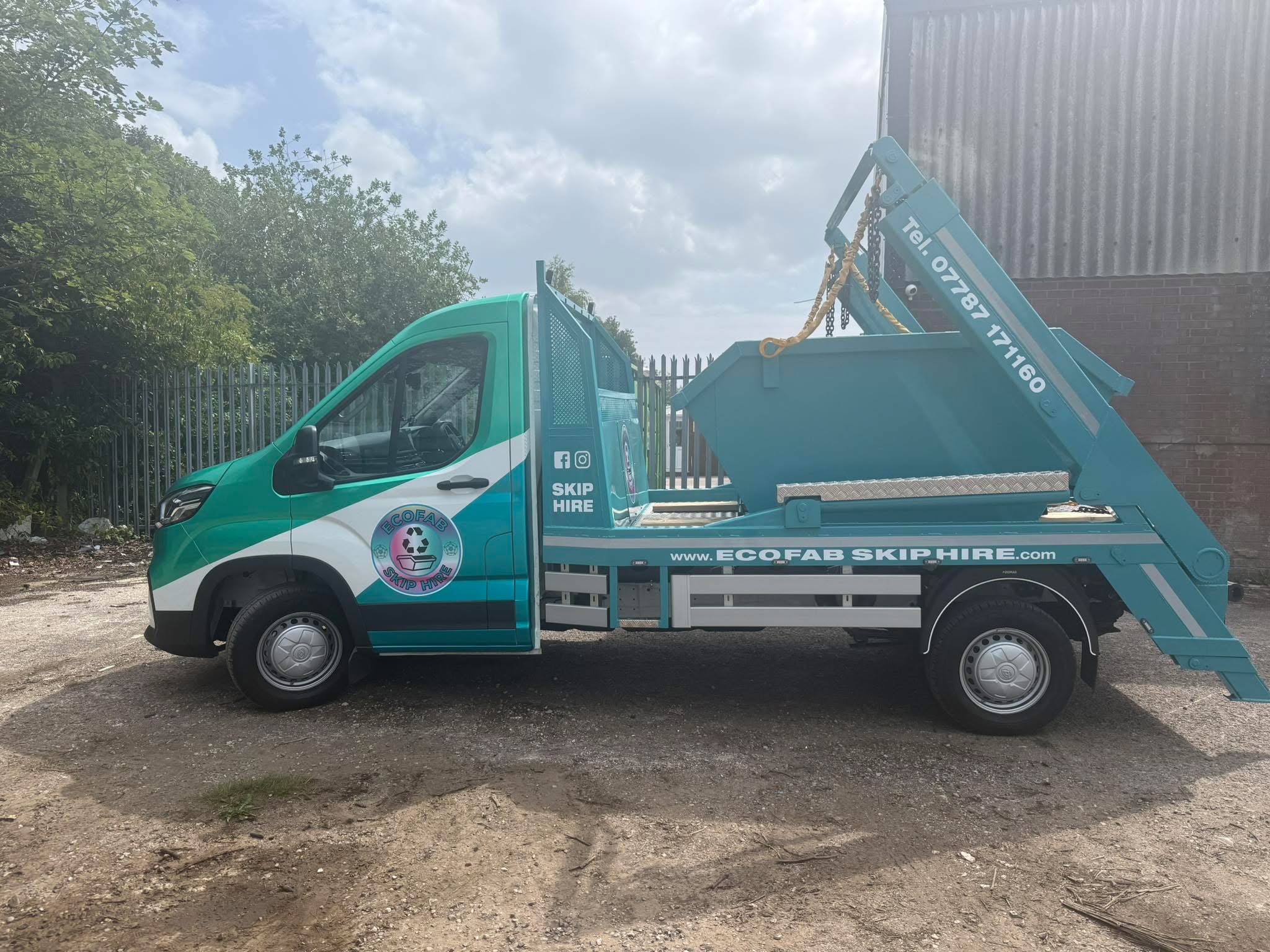fficient waste management is a crucial element of any commercial project, whether it involves construction, renovation, manufacturing, or large-scale facilities management. Commercial skip hire offers a practical and cost-effective way to handle large volumes of waste safely and responsibly. However, choosing the right service involves more than simply ordering a skip and filling it. From legal compliance and safety to environmental responsibility and cost control, there are a number of considerations for commercial skip hire. So how can you make the right choice for your requirements?
So what should you consider when hiring a commercial skip?
There are a number of factors to consider when it comes to hiring a commercial skip, including:
- The type and quantity of waste
- Choosing the right size skip
- Compliance with legislation
- Environmental responsibility
- Location, access and placement
- Safety considerations
Understanding your waste requirements
The first step in selecting the right commercial skip hire service is understanding the type and quantity of waste your company generates. Different types of waste, such as construction debris, packaging materials, metals, plastics, or hazardous substances, require different handling and disposal methods.
A comprehensive waste audit can help determine your specific requirements. This assessment should identify what materials can be recycled, what must go to landfill, and what might be classified as hazardous waste under UK regulations. Knowing this information allows you to hire the appropriate skip size and type, and this means that your waste will be managed in line with environmental legislation.
Choosing the right skip size and type
Commercial skip hire companies offer a range of sizes to suit different projects, from small builders’ skips to large roll-on roll-off containers. Selecting the correct size is essential for accommodating the volume of waste that your company will produce, which can help you avoid unnecessary costs and logistical issues.
Ordering a skip that is too small can lead to the need for multiple collections, increasing costs and environmental impact. On the other hand, hiring one that is too large will waste space and money. Most reputable providers, like us here at EcoFAB Skip Hire, can advise on the most suitable size based on your project details.
For specific waste streams, such as segregated recyclables or inert waste (like soil or rubble), specialist skips may be required. Roll-on roll-off skips, for example, are often used on construction or demolition sites where continuous waste removal is necessary.
Compliance with waste legislation
Waste management in the UK is subject to strict legislation, and businesses have a legal duty of care to ensure their waste is handled responsibly. The Environmental Protection Act 1990 and the Waste (England and Wales) Regulations 2011 set out the requirements for how waste must be stored, transported, and disposed of.
This means that when hiring a skip, it’s essential to use a licensed waste carrier. This helps to ensure that your waste is collected, transferred, and disposed of in accordance with the law, protecting your business from potential fines or reputational damage.
In addition, you should keep holding of any documentation such as waste transfer notes, which record the movement and type of waste. These documents may be requested by regulators and should be kept for at least two years.
Environmental responsibility
Sustainability is an increasing priority for organisations across all sectors. Partnering with a skip hire provider that prioritises recycling and ethical waste disposal, like us here at EcoFAB Skip Hire, supports corporate social responsibility goals and demonstrates commitment to environmental best practice. In fact, here at EcoFAB, more than 90% of the waste we collect is recycled.
Location, access and placement
Where the skip will be placed is a practical yet often overlooked consideration. For private commercial premises, access for collection and delivery vehicles must be ensured, with sufficient clearance for safe loading and unloading.
If the skip needs to be placed on a public road or verge, a permit from the local council will usually be required. The skip hire company can often arrange this on your behalf, but it’s important to allow sufficient time for approval. In most cases, skips on public land must also be clearly marked, lit at night, and positioned in compliance with local authority guidelines.
Restricted access, uneven surfaces, or nearby obstacles such as overhead cables can all affect where and how a skip can be safely located. As a result, conducting a quick site inspection before delivery can help avoid delays or complications.
Safety considerations
Health and safety should always be a priority on commercial sites. Skips can present hazards if not managed correctly, for example, by overfilling, storing improper waste types, or by following unsafe loading practices.
As such, staff should be instructed on how to use the skip safely, ensuring heavy items are loaded evenly and no materials protrude above the fill line. Hazardous or prohibited items, such as asbestos, batteries, or chemicals, should never be placed in general waste skips unless specifically authorised.
Good site housekeeping also helps reduce risk. Clearly marked signage, adequate lighting, and maintaining clear access routes for collection vehicles all contribute to safer operations.
Choose EcoFAB for your commercial skip hire
Here at EcoFAB, we are the number one choice for commercial skip hire in Chorley and the North West, and we offer a wide range of options to suit any business in any sector. Get in touch today to find out more.
.




